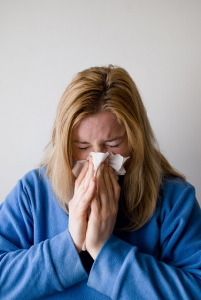There is, at present, an ongoing scientific debate about selenium supplementation and the possible prevention of COVID-19 disease. What is the evidence that selenium supplementation of individuals with sub-optimal selenium status might help to prevent the infection?

The answer from a group of longstanding selenium researchers is that selenium supplementation does not have “a sufficient direct antiviral effect to prevent infection.” Instead, selenium supplementation acts “by decreasing the harmful effects of the virus on the host” [Rayman 2024].
Selenium supplementation “does not necessarily prevent infection but rather decreases the severity and mortality resulting from the infection” [Rayman 2024]. The important thing to focus on is the interaction between the human host selenium status and infectious virus strain and virulence [Beck 2003].

